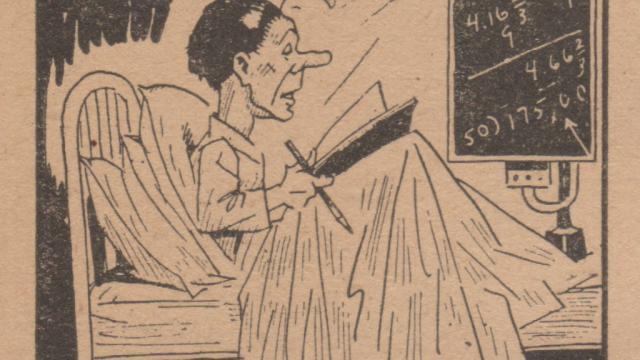In 1934 the president of Northwestern University, Walter Dill Scott, predicted that technology would radically change the university experience.
Distance learning would be more common thanks to TV, radio and fax. And commuting students would change the physical landscape of the surrounding school. President Scott wasn’t altogether wrong, but the future didn’t arrive quite like he imagined.
From the September 1934 issue of Everyday Science and Mechanics magazine:
The university of twenty-five years from now will be a different looking place, says President Scott of Northwestern. Instead of concentrating faculty and students around a campus, they will “commute” by air, and the university will be surrounded by airports and hangars. The course will be carried on, to a large extent, by radio and pictures. Facsimile broadcasting and television will enlarge greatly the range of a library; and research may be carried on by scholars at great distances.
The magazine even ran a cartoon (above) illustrating this vision of a future student’s TV-filled education, while also poking fun at the fact that students can be super lazy.
It’s easy to forget just how optimistic educators were about television before it became a practical reality for the average American. Many people of the 1930s imagined that TV would provide a virtual blackboard that any student could tune into from home. And professors might even teach remotely, thanks to the wonderful communications technologies being developed.
But the future never quite pans out precisely as we imagine. And whether it’s analogue-TV blackboards or streamlined bubble-top cars, it’s always fun to imagine the future that never was.
Picture: Scanned from the September 1934 issue of Everyday Science and Mechanics magazine
